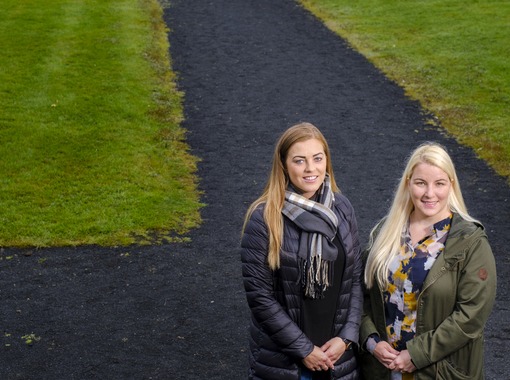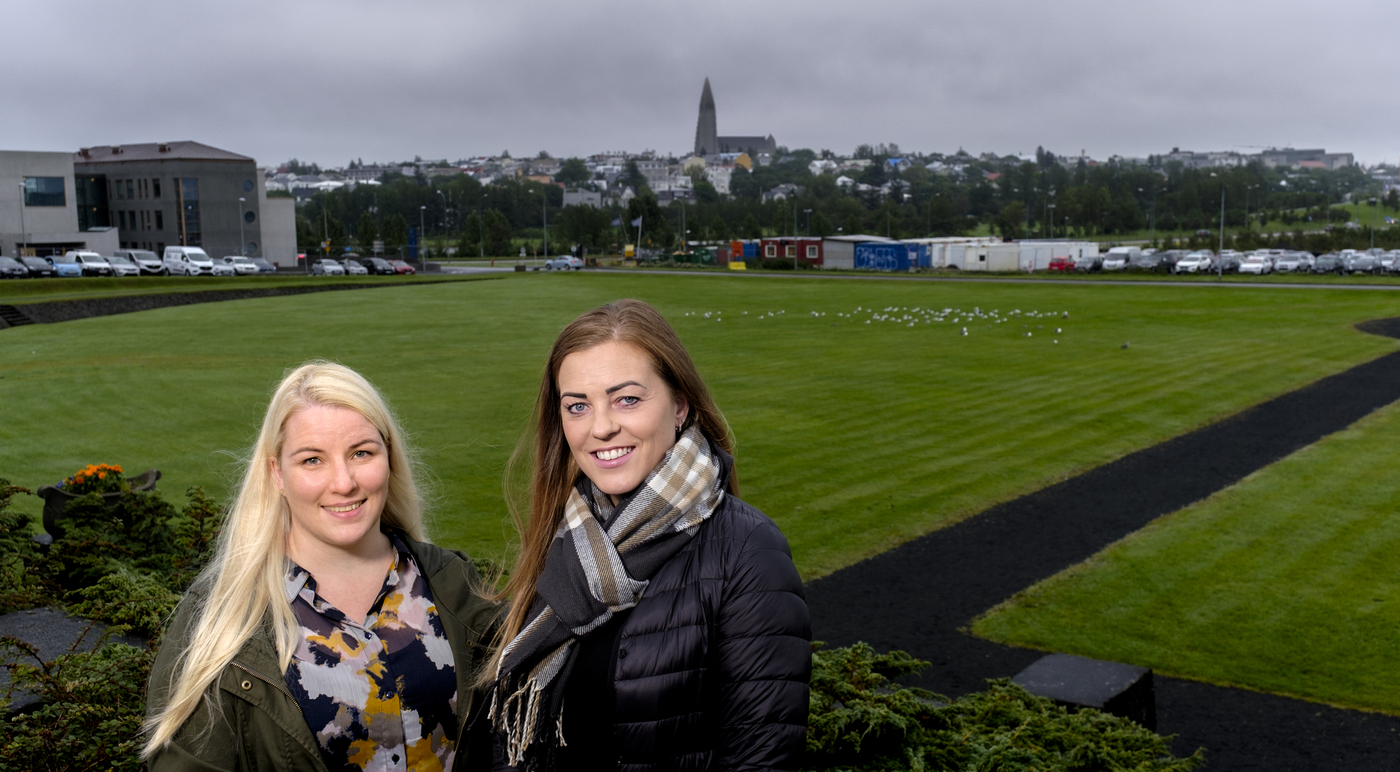Over two thousand students took a summer course offered by the University of Iceland to react against the impact of the corona pandemic, thus reducing unemployment and strengthening education. Around 120 courses from all five University schools were offered this summer, including a course on issues of the homeless and harm reduction, a policy area that has received a lot of attention recently. We spoke to Selma Björk Hauksdóttir, teacher in the course, who is working on a PhD on a related subject, and Hildur María Brynjólfsdóttir, student of Social Work, about the course, but her own experiences sparked her interest in the course.
The course was called Issues of the homeless: the situation in Iceland, services, and knowledge, and was organised by the Faculty of Social Work. The aim was to provide students with an insight into the situation of people who do not have a roof over their heads and the ideology "housing first". The curricula also included the ideology of harm reduction and how it is applied in Iceland.
"I am writing my doctoral thesis at the Faculty of Social Work and my subject is homelessness and the ideology housing first. The issue concerns most aspects of social work, and it is thus important to draw attention to these issues and what is being done here in Iceland," says Selma Björk Hauksdóttir, one of the teachers in the course about how it came about. Other teachers in the course were Svala Jóhannesardóttir, manager, and Hrafnhildur Ólöf Ólafsdóttir, head of Reykjavík's Department of Welfare, and the course supervisor was Guðný Björk Eydal, professor at the University of Iceland's Faculty of Social Work.
Housing first makes housing a priority not conditional on behaviour or meeting specific demands
According to Selma the ideology of housing first prioritizes permanent housing for people experiencing homelessness thus ending their homelessness and serving as a platform to deal with various difficulties.
"This ideology revolves around the needs hierarchy where housing is the foundation for feeling secure. If the basic needs are not met it is difficult to organize and manage daily life. According to the ideology, people, do not lose their housing services if they do not fulfil certain requirements. The team offers services tailored to the individual for as long as it is needed; adjusted to different circumstances in each instance," says Selma.
Selma says that current statistics for homeless people in Iceland are not available, but they that were 350 in a report from 2017. "A certain group is always hidden, making it difficult to estimate how many are homeless today," she points out.
Harm reduction is about services on the users' terms
Closely related to the concept of housing first is the concept of s harm reduction, which is about trying to holistically reduce the of dangerous and negative health related, social and economic effects of drug use for users, their families, local communities and society as a whole. "By working according to a harm-reducing ideology, users are met where they are at any given time and on their own terms, in addition to which all small steps towards positive change are strengthened. This opens up opportunities for support and services for a group of people for which the traditional abstinence approach is not suitable, "Selma explains.
She points out that this ideology is applied both at Mrs. Ragnheiður, the Red Cross project, and at Konukot, an emergency shelter for homeless women. "There are, furthermore, various other parties that provide users with services that lead to harm reduction."
“Today the largest number get services in Reykjavík, but all municipalities have the same duties. Furthermore, it would be beneficial to adopt harm reduction in public policy, where different institutions and resources are taken into account. At the same time, it is important to educate staff and the public on what harm reduction is all about, because there are many misunderstandings concerning this in public discourse,” Selma Björk Hauksdóttir here with Hildur Maria Brynjólfsdóttir. image/Kristinn Ingvarsson

Very difficult to have a family member on the street
It is safe to say that the course drew a varied group of students; the student group included students from social work, sociology, nursing, medicine, anthropology, psychology, and political science. “Furthermore, there were a few who joined summer courses from outside the university,” Selma adds.
Among those who attended the course was Hildur Maria Brynjólfsdóttir, student of social work. She says that experiences from her own family sparked her interest. “A few years ago, a family member lost the grip on their life and ended up on the street for a few years. It is a very difficult experience when someone this close to you is homeless – and having lived through that the issues of the homeless have been important to me. When I saw this course advertised, I knew right away that I would sign up, because I wish to use my experience to help others. As awful as the episode was it also was a learning experience that I will carry with me my whole life,” she says.
Hildur says that the course was both very informative and interesting. “We gained insight into the conditions of the homeless and what resources are available to them. We also visited homeless shelters and Konukot and got to know about their operations,” Hildur says.
Hildur has volunteered at Konukot since last spring. “It is important to me to be there for the women who need support,” she says and adds that she is could well see herself working in this field in the future. “I am also very interested in reviewing what we as a society can do to prevent people from ending up on the street, how we can intervene sooner.”
The state and municipalities must cooperate in this field
Hildur says she has gained a lot of knowledge from the course. “It was interesting to review the policy of the city of Reykjavík in the issues of the homeless and seeing what policies have worked well in other countries, such as in Finland and Canada,” says Hildur. As it is Reykjavík is the only municipality to have formally adopted the ideology.
Selma adds that the state needs to get involved, and that the state and municipalities need to collaborate. “Today the largest number get services in Reykjavík, but all municipalities have the same duties. Furthermore, it would be beneficial to adopt harm reduction in public policy, where different institutions and resources are taken into account. At the same time, it is important to educate staff and the public on what harm reduction is all about, because there are many misunderstandings concerning this in public discourse,” she says.




